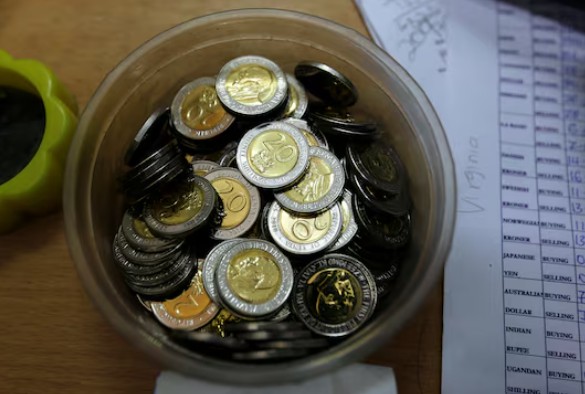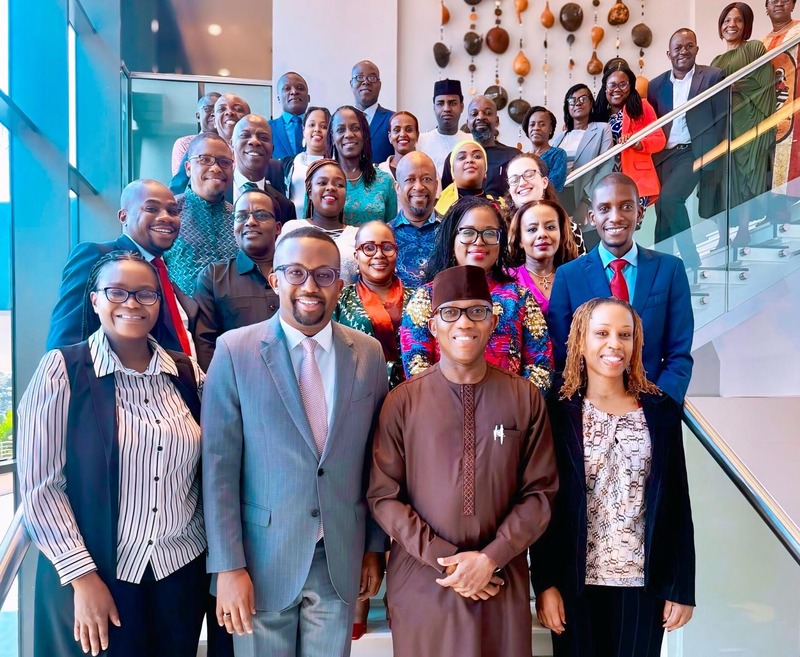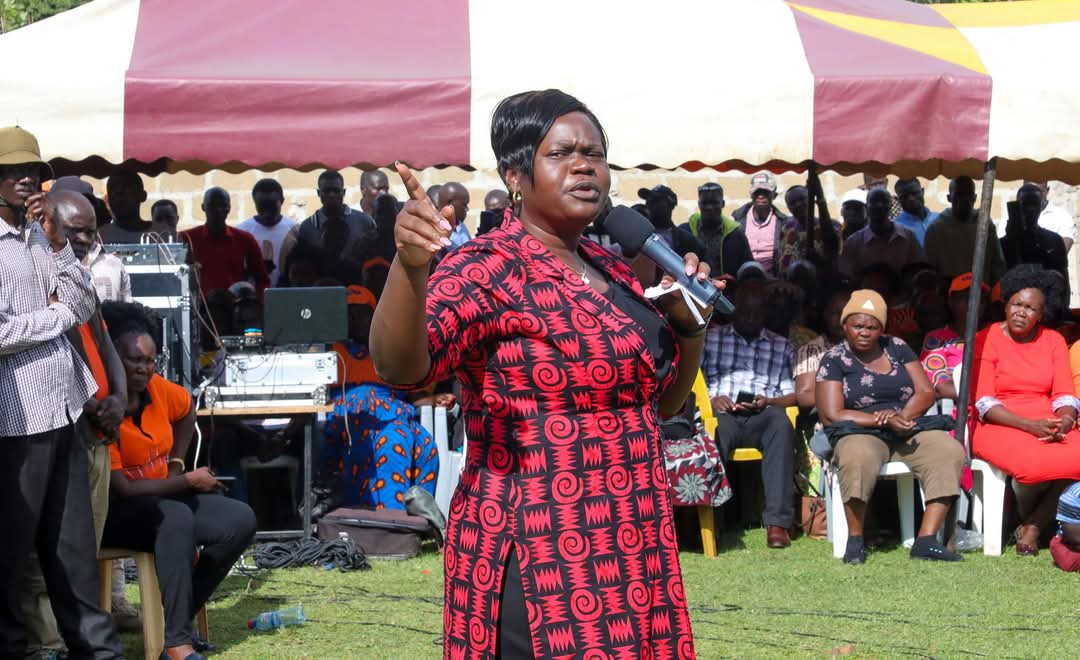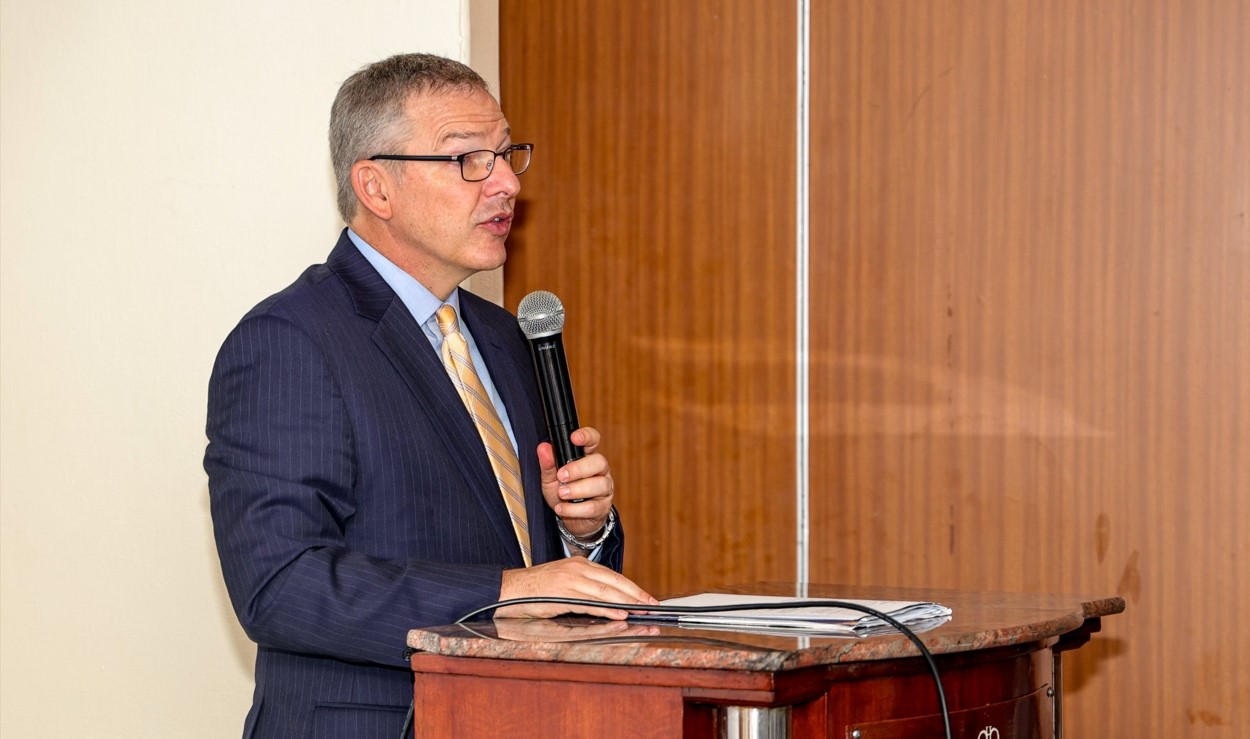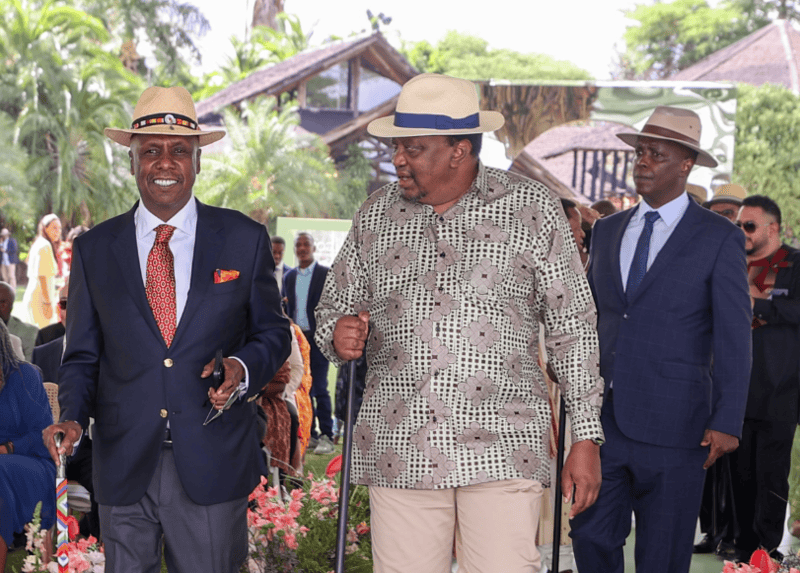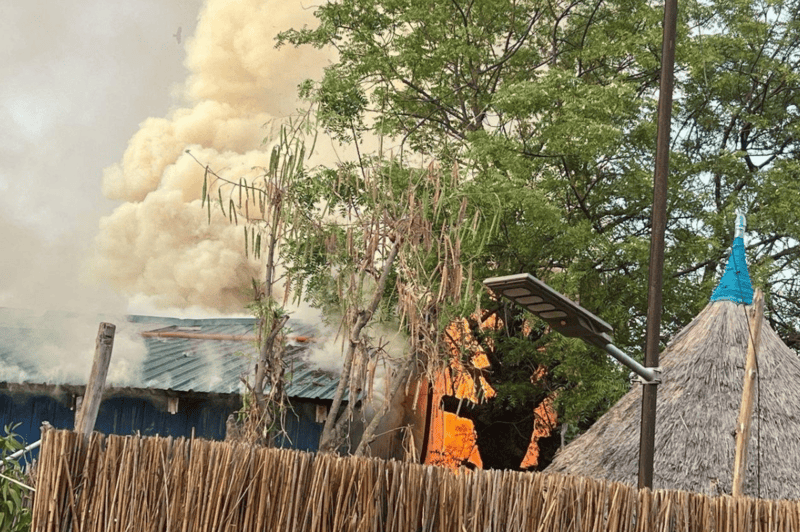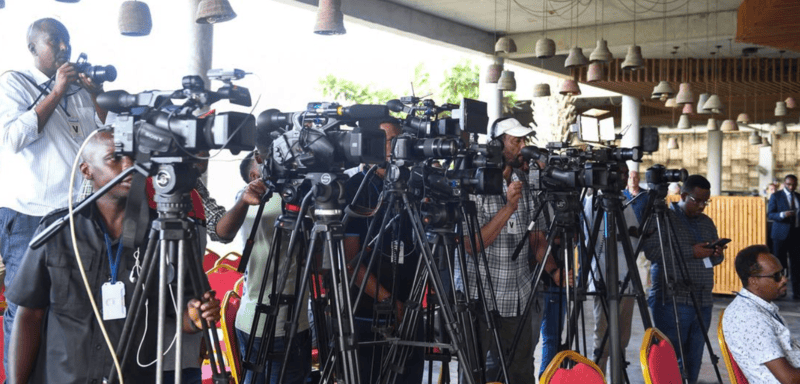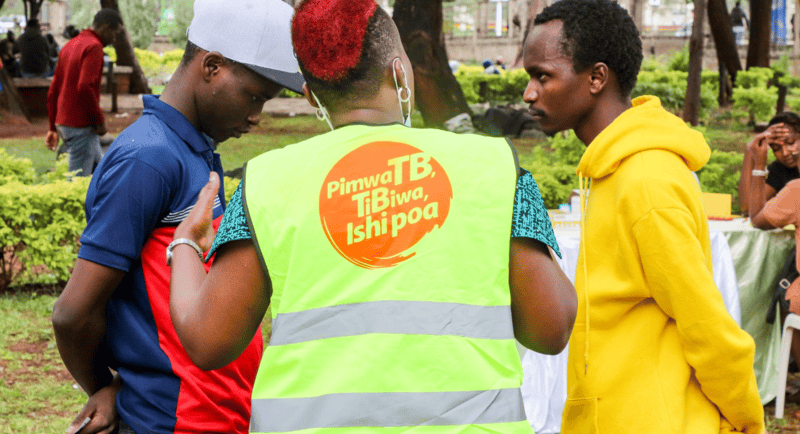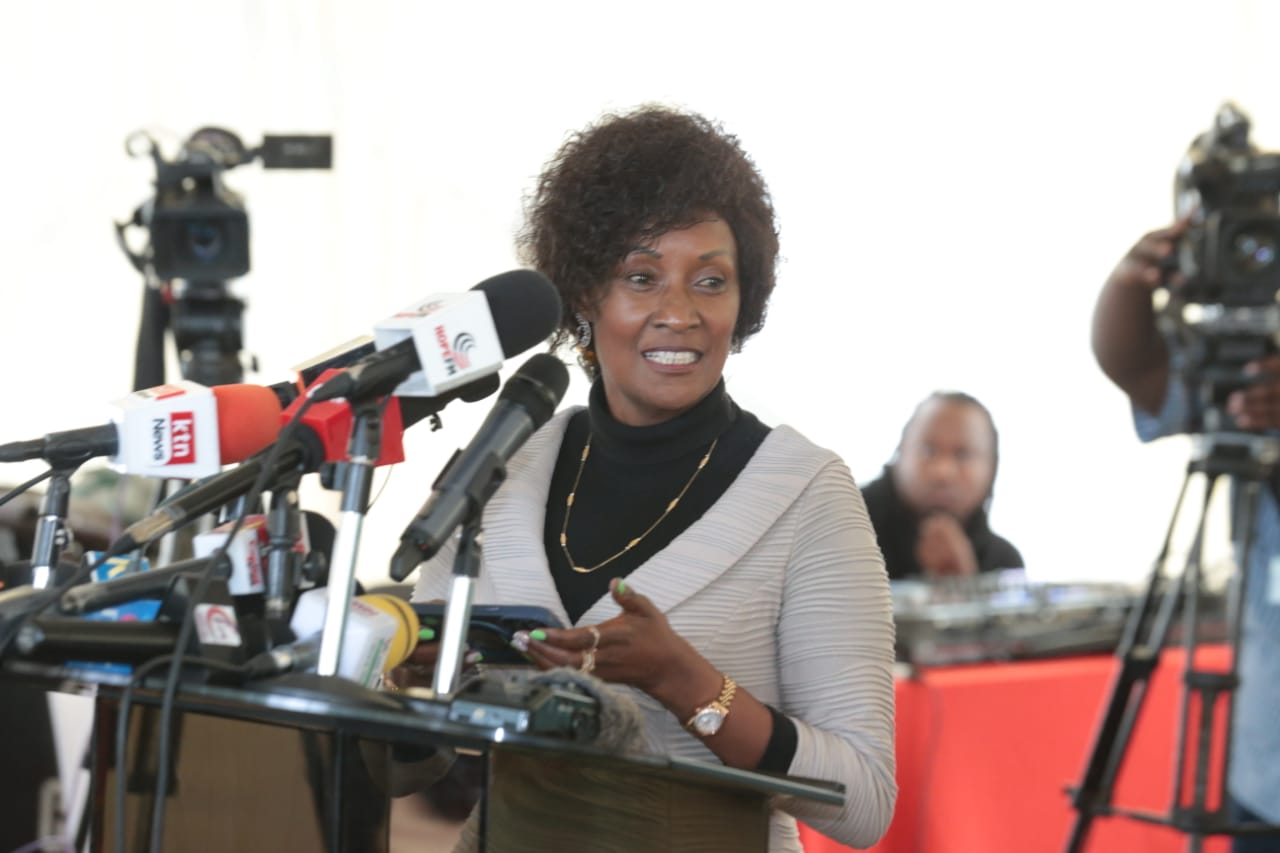Freed but not silenced: Fury erupts over arrest of BBC filmmakers behind Gen Z protest exposé
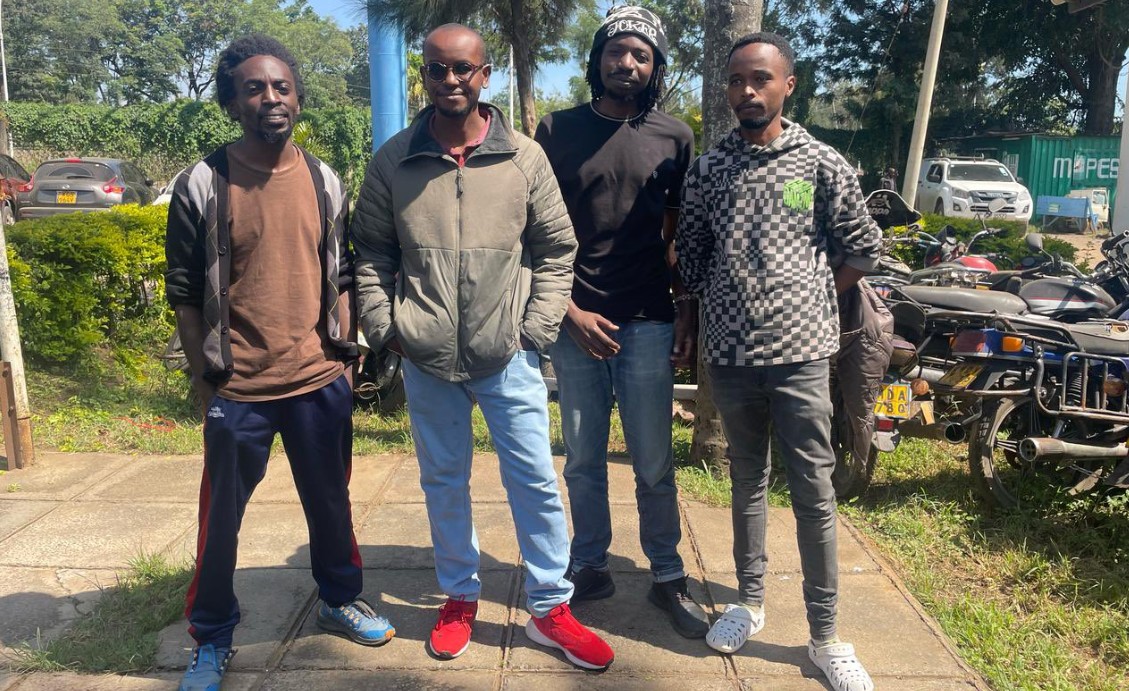
The creative industry and civil society have interpreted the police action as part of a broader pattern of repression targeting independent voices that question state power.
Four Kenyan filmmakers arrested in connection with the BBC documentary, Blood Parliament, which exposed alleged police killings during last year’s Gen Z protests, have been released, but the outrage surrounding their detention continues to grow.
Nicholas Gichuki, Brian Adagala, MarkDenver Karubiu, and Chris Wamae walked free on Saturday, May 3, after spending the night in police custody.
More To Read
- Kanja orders police to support IPOA probes amid pressure over Gen Z protest killings
- Rights groups demand arrests of killers of protesters at Parliament following BBC exposé
- IPOA issues status update on probe into June 25 protester killings after BBC exposé
- IPOA probes alleged police assault on woman in Narok
The group had been picked up during a Friday night raid at their studio in Karen under unclear circumstances.
Their release came without any charges being formally presented to them at the time, though they were placed on free bond. Police, however, withheld their equipment and data storage devices.
Lawyer Ian Mutiso, who has been leading the legal team pursuing their freedom, confirmed their release.
He said the four were later made to provide statements to police without the presence of their lawyers, despite being linked to a controversial documentary that has caused ripples within the state security structures.
The BBC Africa Eye documentary captured scenes of uniformed officers allegedly firing live bullets at peaceful protesters during anti-tax demonstrations outside Parliament on June 25, 2024.
In some of the footage, members of both the National Police Service and the Kenya Defence Forces were seen aiming directly at unarmed demonstrators.
Dangerous escalation
The Civic Freedoms Forum (CFF) has condemned the arrest, calling it a dangerous escalation in the shrinking space for free expression in Kenya.
“Their arrest, believed to be politically motivated, raises grave concerns about the increasing weaponisation of law enforcement against independent journalism and documentary filmmaking,” said the CFF in a statement.
The organisation described the filmmakers’ detention, carried out without formal charges or visible arrest warrants, as a blatant violation of media freedoms and constitutional rights.
“That this blatant act of intimidation occurred on the eve of World Press Freedom Day is not just ironic, it is a deliberate affront to the values enshrined in our Constitution and the international conventions Kenya has ratified,” the forum stated.
CFF demanded the immediate and unconditional dropping of all charges, arguing the arrests breach Articles 33 and 34 of the Constitution, which protect freedom of expression and media independence.
The group also cited international human rights agreements that Kenya is bound by, including the African Charter on Human and Peoples’ Rights.
“What happened is not just about four individuals; it is a warning to all journalists, filmmakers, and truth-tellers in Kenya. We cannot, and must not, allow fear to take the place of facts, or repression to replace reporting,” CFF said.
Although the Directorate of Criminal Investigations has not issued a formal statement, reports indicate that the group faced charges of false publication, allegedly connected to the content of the BBC documentary.
CFF urged the DCI to explain the legal basis for the arrests and asked the Kenya National Commission on Human Rights and Parliament’s Media and ICT Committee to investigate the matter. The Forum also called on civil society, legal groups, and the international community to support the arrested filmmakers and the wider media community.
The arrests followed the release of Blood Parliament, which has raised pressure on the state.
Director of Public Prosecutions Mulele Ingonga has since ordered the Independent Policing Oversight Authority (IPOA) to open investigations into the use of force during the Gen Z-led protests. Ingonga noted the documentary had “raised serious concerns” about police conduct and said the matter was of public interest.
IPOA investigations
Following the exposé, IPOA provided updates on the investigations it has conducted since the mass protests in June 2024.
In the aftermath of the protests, which involved clashes between the police and demonstrators, the IPOA has shared the actions taken to seek justice for the victims.
Of the 60 reported deaths, 22 investigations have been completed. The authority is currently pursuing 36 active cases, while two others are in court.
IPOA further detailed that among the completed investigations, eight are undergoing final internal review, with four in the last stages of report writing.
Comprehensive reports were submitted to the Office of the Director of Public Prosecution (ODPP) for independent assessment. After their review, the ODPP closed three of these cases.
IPOA is also investigating 191 cases out of the 233 injuries recorded during the demonstrations. So far, 42 injury cases have been closed, and two have been referred to the ODPP.
However, IPOA has encountered challenges in conducting investigations due to a lack of cooperation from both the police and witnesses. The authority has pledged to engage with the police command to ensure justice is achieved.
But rights defenders argue that instead of investigating the allegations of excessive force, the state has turned its attention to the storytellers.
The Kenya Film and Television Professionals Association had earlier criticised the arrests.
“We stand in full solidarity with our arrested colleagues, their families, and the entire creative community,” said chairperson Ezekiel Onyango.
“We will not relent until our colleagues are safe, heard, and home.”
The creative industry and civil society have interpreted the police action as part of a broader pattern of repression targeting independent voices that question state power.
Top Stories Today


